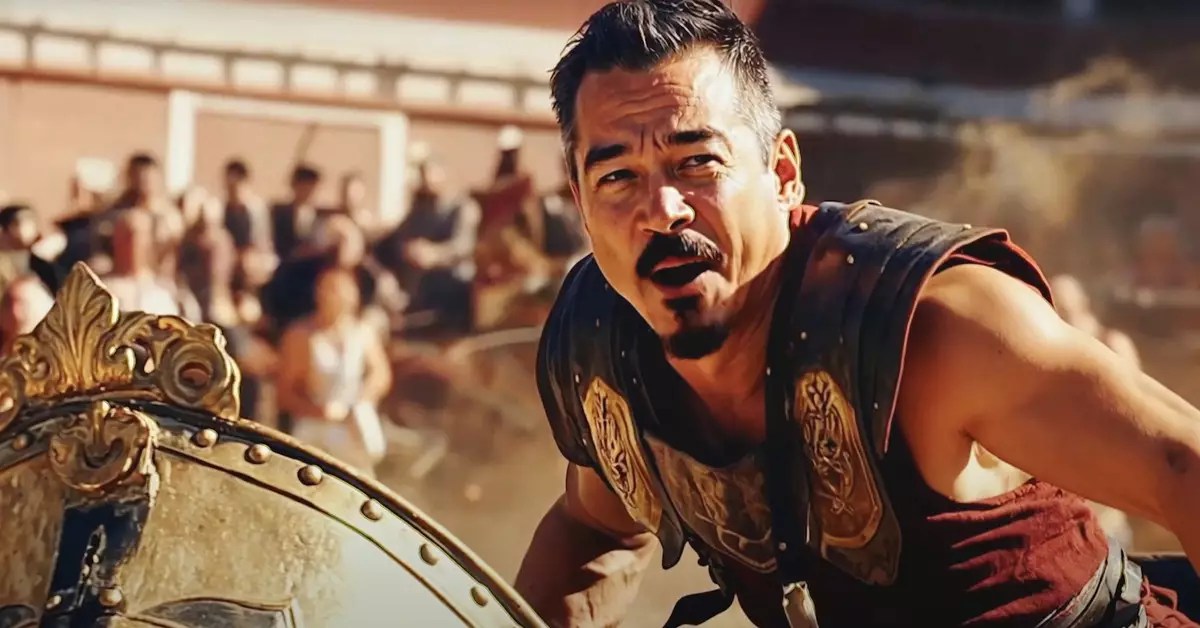The advent of artificial intelligence has ushered in an era of creative experimentation that, at times, straddles the line between innovation and absurdity. Recently, TCL, a significant player in consumer electronics, made headlines by releasing a series of AI-generated short films designed for its free streaming service, TCLtv Plus. This foray into AI animation sparked interest, especially following the backlash to their initial short, “Next Stop Paris,” which faced criticism for its lackluster animation and subpar storytelling. However, TCL’s follow-up offerings do not necessarily redeem the brand; instead, they reveal the persistent shortcomings of AI-generated content.
Artificial intelligence has shown great potential in various fields, but storytelling remains one of its most challenging endeavors. In TCL’s endeavors, the narratives seem stretched and convoluted, often resembling a clumsy collage of ideas rather than cohesive tales. One of the new shorts closely mirrors Ray Bradbury’s “All Summer in a Day,” introducing viewers to a young girl on a distant planet where sunlight is a rare commodity.
While the premise holds promise, the execution is hampered by poorly executed animation that detracts from the narrative flow. The animation lacks the nuances of human expression, leading to characters with stiff body language and lifeless faces. Such deficiencies undermine the emotional weight of the story, leaving the audience more bemused than moved. Ultimately, the animation does not enhance the story; rather, it hampers engagement, revealing the limitations of relying on AI for creative storytelling.
“Project Nexus,” another offering, attempted to break free from the constraints of realism by adopting a more stylized animation approach. However, even with the freedom granted by embracing a fantastical aesthetic, the storytelling falters. The film opens with an intriguing concept involving supernatural powers stemming from a radioactive rock. Yet, the narrative quickly unravels as the storytelling dissipates into a vague series of disjointed events, culminating in what feels more like a teaser than a complete tale.
Compounding this issue is the animation, which struggles to convey emotions or fluid movement. Although intended to be less humanlike, the result nonetheless falls flat; the characters remain wooden and unconvincing. The ambition behind the idea is commendable, but when interwoven with lackluster animation and unimpressive voice acting, the potential of the story is lost.
“The Audition” presents a curious case where the concept of satire and humor is explored through AI-generated animation. At first glance, the premise—a struggling actor attempting various impressions for a selective casting director—seems promising. However, the initial comedic setup devolves into a series of perplexing and nonsensical scenarios that leave the viewer scratching their heads more than laughing.
The infusion of absurdity ultimately feels forced and is devoid of genuine humor. Characters morphing through animation in a disjointed fashion detracts from any comedic timing and replaces wit with confusion. It begs the question: Can AI truly understand humor? The answer, at least in this instance, seems firmly poised in the negative.
Among TCL’s latest batches is a docufiction-style film recounting a harrowing personal story of survival. While this might offer a serious tone compared to other shorts, the need for authenticity renders it even more susceptible to criticism. The film oscillates between AI-generated flashbacks and human re-enactments, leading to a jarring inconsistency that undermines the gravity of the narrative.
The strange intertwining of visual styles detracts from what should be a heartfelt recount of a life-changing experience; instead, it comes across as a series of bizarre images and disjointed storytelling. The mixture of AI images with graphic representations of trauma leads to an unsettling viewing experience that struggles to resonate with audiences emotionally.
TCL’s venture into AI animation undoubtedly raises questions about the creative potential of artificial intelligence. However, as we observe with these five shorts, the technology still wrestles with delivering meaningful narratives that resonate with audiences. While there is an undeniable novelty in AI film, the results often linger in the uncanny valley, where animation fails to evoke genuine emotions or provide engaging storytelling. The exploration of AI in film remains an intriguing path forward; however, it seems evident that we are still far from harnessing its full creative potential effectively. Until significant advancements are made, viewers may find themselves yearning for the craftsmanship of human artistry over the cold precision of AI-generated content.


Leave a Reply